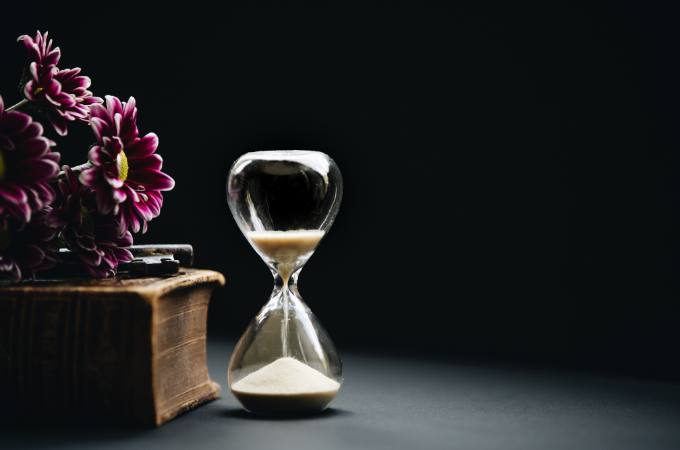
There is the gong, sounding,
Like a metal owl with a hook in its throat,
And there are the stars, being stars.
And there is my father,
He is saying:
“Children, there are only two things that could
Matter here: What you know, and what
You don’t.
And so we learn, that the world is a
Two-timing bitch;
For every good, there’s evil waiting,
For every rising, a falling will succeed,
For every death, rebirth,
Everything, born with an inseparable
Nemesis.
What did we not know?
“Chakapu! Chakapu! Ah ah, die now! It’s not like that they used to die oo. You will first hold your chest, and shine your eyes, then you’ll bring out your tongue plek. Ehe.”
Like that, I learnt to die when I was six, while we played police and thief with Chinwendu, our neighbor’s son with a flat head — we used to tease him, saying that his mother, who offered catering services, mistook him for a meat pie when he was younger, and used a rolling pin to flatten his head. Aunty Florence, his mother had such a huge backside, that I had a better version of the story in my head, it featured her accidentally sitting on Baby Chinwendu’s head. Chinwendu was fourteen, and short, older than us all, so he was automatically the overseer of all our adventures. By adventures, I mean everything we did within our compound, typical we-live-in-Lagos-with-just-our-strict-mother type of adventure. We made a ship out of a fallen blue plastic canopy and sailed away to Port Harcourt through England, surviving only on our ever-steaming soup of wet sand and groundnut shells. We died in the most theatrical manners and resurrected seconds later with a fresher agenda. We would tinker with old batteries, nails, wood, wires and rusted steel flashlights, inventing hologram telephones, with glitching portals.
In the year 2007, we lived in Isolo, my siblings – Adaora, Bomboy, Chibuike, my Mother, and I. Kamoru Adeyemi Street, just across the Mobil filling station. Adaora was ten, Bomboy, eight; Chibuike, seven, and I was five. Our father lived in our village, from where he sent us money from his local government job. He came home every Christmas and left as soon as the third of January. My father had the rich-man look – a brown head he kept bald, and a potbelly, round and soft – like your mother’s cooking pot. I used to put my head on his belly to listen to the raucous his innards were making.
On the Christmas of 2009, my father took us to the trade fair in Balogun, with my mother in the front seat and a head wrap, pointing at everything and telling us what was original and what was not. “See these bananas? They are not original o, they taste like water in your mouth,” And “You see this stall? All their clothes and shoes are Aba-made, when I say Aba, I mean the fake Aba, not original Aba. Fake raised to power two!” We would laugh because we could because we were not the ones going into the fake stalls to bargain for anything. We would park my mother’s grey and scratched Peugeot 505 beside a “Chimex and Brothers Clothing and Accessories” where our father would buy us each a pair of original leather shoes, together with shoe pads, cloying floral dresses for Adaora and me, suits for Bomboy and Chibuike, Power Ranger wristwatches, stuffed toys of different shapes and colors.
As we drove home, we giggled from ear to ear, and threw our stuffed toys out the car window, casting spells on them, “Atusefa, Atusefa”— gibberish for, “What is ours will come to us, what goes up must come down, must come down.” By the time our mother realized what was going on, every toy was out. That was our first kill. That evening, Adaora read out of her Longman pocket dictionary:
Murder1 / noun
1 [countable, uncountable] The crime of deliberately killing someone.
Murderer /noun [countable]
Someone who murders another person.
We conducted a mass funeral and went to sleep solemn.
See, when you listen closely to the world,
You’ll learn that a rhythm doesn’t
Have to mean anything
It’s just sound you see, and nothing happens
For nothing’s sake,
“We’re stuck here, baby.”
“We’re old roses, baby.”
New Year’s Eve would bring us harassment from our landlady, my father was years late on our rent, and we were not as rich as we had thought. We were sitting all cozy in our parlour, watching telenovelas with bow-bearded men and desperate women, when our landlady would barge into our house, with a spoon and an empty Milo tin, making music with our debt. Because, everything is an old cassette player, feeding on brown strips — that is everything we are. How this makes sense, I do not know, just that eventually everything can be fit into a joke, brown strips now dragged out by children with empty mouths, as though it was not the entire existence of something else.
Kom korom kom kom Mrs. John, house is not free ooyo oyoo
Kom korom kom kom Mrs.John,, my house is not a charity home
Kom korom kom kom, Mrs John, leave my house for me ooyo
Kom korom kom kom Mrs. John, Omo Ibo, go to Ibo Oyoo!
My mother would call my father with tears in her eyes, “Dim, we are coming home on Sunday.” Click. And that was it, 2010 was the year we came home to Nnewi. Coming home from the city to stay permanently, is like falling from an ukwa tree, blindfolded. The fruit that crushed us was seeing my father, the way he lay all shriveled up like a chewed toothpick on the verandah. When he saw us, his smile was more of a wince — like his insides could not let him be happy. I was eight, and so sure that we had invisible metal straws attached to our lips, with which we siphoned my father’s existence from him. My father had lost his job a few months earlier and his health followed. He was suffering from heart disease, and he skipped weeks of his expensive medicine so he could put food in our mouths.
Asị ka mma na phone — our people say, a lie is better told on a phone call. My father would chuckle at the right time. He would speak so happily that you could almost reach through the phone and touch his spread chocolate lips. He sounded so alive, almost like a bird at dawn, but he was dying.
2011 was the year all my siblings left for boarding school. 2011 was the year I fell in love with sunsets because I had no one else to talk to. Home was hell because everyone hated my mother, they said it was her high taste that was draining my father of life, that she should have stayed at home and worked on cassava farms instead. They mocked her because she did not know how to clean Ukwa with her feet, that her Igbo was lined with too many English words, that her teeth were very white and clean, that her fingernails were trimmed and her palms soft. The truth is that none of them knew Mrs. John, they did not know the way she held me up to her heaving breasts one evening when we stumbled upon the remains of a sacrificed goat while fetching firewood, nor the way she battled with spirits at midnight while the village was asleep, not just our family’s tormentors, but everyone else’s. The truth is that my mother’s beauty was unsettling, her hot milk skin, her nose like a baby arrow, her diastema like a minute of God’s resting time.
Beautiful. My mother was as beautiful as a dying sun. When my people see a beautiful person, they say, Chukwu kwọrọ aka kee ya, God washed his hands before making such a person
I promise,
I promise,
God is in this hell with me
I am not alone.
In the middle of March 2013, my siblings were on a short vacation home, and my father lay on a bamboo bed in our outdoor kitchen, with my mother feeding him roasted pear by peeling off its skin and scooping the steaming butter into his mouth. And just like that, with pear-butter in his mouth, my father died. I do not know why we were expecting something grand, maybe an angel in a black gown, a black whistle hanging by a thread on his neck, coming to announce in old English, that my father’s soul was about to be taken. Maybe a grand feast of Ukwa and fried chicken, maybe an eclipse. My mother walked into our room, where all of us — Adaora, Bomboy, Chibuike, and I were playing a game of WHOT, and she told us calmly, like the strongest woman on earth — that our father had passed away.
Death is a lonely business. There was nothing, no sign at all. I felt like I was in a dream when I walked into the kitchen and saw the corpse, in his nylon blue shirt and checkered briefs. I stooped and whispered into his ears, “Wake up.” Wake up, because nothing special has happened at your end. Wake up because the sun will set tomorrow, and the seasons will not change faster because of you. Wake up because I am here. Death destroys by creating a new thing. My father was a new thing, something to be evacuated quickly. My father was an object that caused the villagers to throw hushed curses at us because we just stood there, without wailing.
When my father’s coffin was being let down in May, I cast a spell on it, “Atusefa, Atusefa,” which was gibberish for, “what goes down must come up, come up. What is mine will come to me.” My mother sat by the burial mound for days, her hair now very close to her scalp, and she sang sweet songs, as though she were trying to put a dead man to sleep.
I remember learning to die when I was six, and the only truth that lesson held was that when one thief dies, another takes over. When one policeman dies, another is promoted. Nothing stops because of you. You either get up and dust your knees, pick up your phantom rifle and shoot, or someone else will do it for you.
I remember whispering into death’s ear when I was eleven.
There’s the child, pulling on the brown strips
Of an old cassette record,
It’s John Lennon’s “Beautiful Boy”
he is pulling and running,
and watching it glide in the airy space
behind him.
when the strip ends, He doesn’t know,
so he keeps running.
He turns back again, and sees nothing
following him, he is like a man who
has woken up without a shadow — frantic.
But he is a child, so he puts the dead record
to his chest and probes it, “why didn’t you
say you were dying?”
He goes home, he picks another record,
and runs.
Photo by Nathan Dumlao on Unsplash



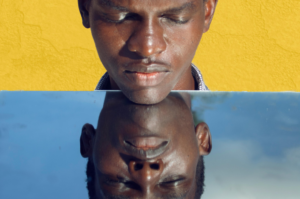

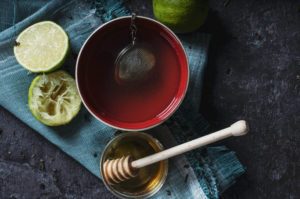

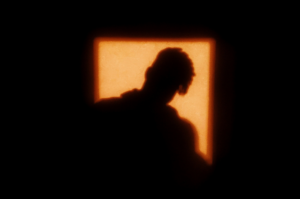
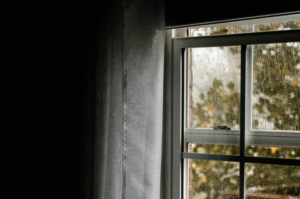

Nozipho June 23, 2023 07:13
Wow you write with urgency and beauty. I could not put this down.